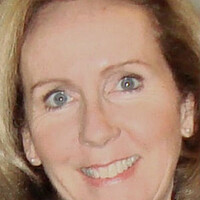Mother's Day: What would a mom say to college graduates?
Loading...
Mother’s Day coincides with graduation season every year, but imagine if someone who identifies primarily as a stay-at-home mom were invited to deliver the commencement address at Elite Prep or Ivy League University.
Unlikely, yes. Mothers work best as graduation props: “I couldn’t have done it without Mom, who worked day in and day out with never a day off...” But that’s about it. And surely no graduation speaker would recommend that graduates consider becoming professional mothers. No. A bias of early feminism remains: your talents will be wasted if you stay at home.
Professional mothers – stay-at-home-mothers -- still fear they may be frittering away a marketable life on trifles. Not to mention setting themselves up as the source of all dysfunction and angst in their adult children.
Who wants to do that?
Not many. Although, Census Bureau data analyzed this spring by the Pew Research Center indicated that the number of women staying home full-time with their children rose to 29 percent in 2012 from a modern-era low of 23 percent in 1999, the study suggests economics, not a boost of maternal fervor, as the cause.
Certainly the need for moms to be home seems less pressing today, as family size shrinks. Life is long, and women will fill a large percentage of it with non-mom pursuits. Also propelling mothers out of the house and into the workplace, of course, is the near-unanimous belief that families need two incomes, that labor on the home front is less, well, legit, than the paid kind.
Perhaps the disregard for motherhood-as-a-profession is also a reaction to the well-publicized wrongs which some women suffered in generations past. Kate Michelman, former president of National Abortion and Reproductive Rights Action League (NARAL), has written and spoken widely recently that her lifelong advocacy began with the abortion she had when her husband walked out on her and her three children when she was pregnant with their fourth. Fair enough. But when one mother’s bad experience – desertion in marriage, in this case – serves as the cautionary tale for future generations, then are we encouraging mothers to expect disappointment as the norm? Are today’s moms better off playing defense?
But if mom were speaking to the graduates, she wouldn’t talk about all that.
She’d say that if you want the choice of being a professional mother later, watch out for debt now. Even student loans for the most lucrative professions can’t be counted on to deliver the sure payoff they did for past generations. Plus, sometimes you change your mind. Sometimes life changes it for you. Do you really want your student loan portfolio to dictate your every life choice? That’s not to say don’t borrow, just be careful.
Mom would also say that some people are professionally or temperamentally more suited to having two incomes. Some are more financially needy. But many couples consider it a personal challenge to see how light they can travel, how much fat they can trim. Some find that a clear division of labor makes the family efficient, and they ignore the Chicken Little warnings of college and retirement fund marketers who suggest that squeaking by on a single income is an irresponsible choice. Mom would say that life – a good life, anyway – involves risk as well as risk management.
Professional motherhood – the raising of a family – has practical, day-in-and-day-out advantages. Set aside the smarmy sentimentalism that takes over on Mother’s Day. Consider the fact that you aren’t stuck sitting at a desk all the time, which is a number one health and wellness plus. You’re on your feet, up and down stairs, in and out of cars, in and out of cabinets and closets, folding, stirring, hugging, lifting, wagging your finger.
The physicality of the job leads to another plus: there’s no dress code. Yes, sometimes you might wish there were, like when you see your friend come off the train wearing an elegant suit and you’re there in old leggings with a stroller. But hey, if you have a day when you want to wear an elegant suit, you can do that and no one’s going to stop you.
Which brings us to the best and biggest plus: you make your own decisions. Sure, you are tethered, in a way, to your children and their schedules, but you are free. You can add, delete, alter, you can shape the program on any given day according to what you, yourself, think is important. Today it’s math skills, or manners. Tomorrow, as you are master of your family domain, it may be sleeping in. You know what you need to do. You have the flexibility to do it. That’s more than much of the world can say.
So graduates, hold this in your hearts: being a professional mom is a noble, freeing, and challenging endeavor. There is the caring for the present, and the shaping of the future. And though you may never be invited to deliver a commencement address, you can address everything you need to when you all get back in the car.
Now go change the world.








